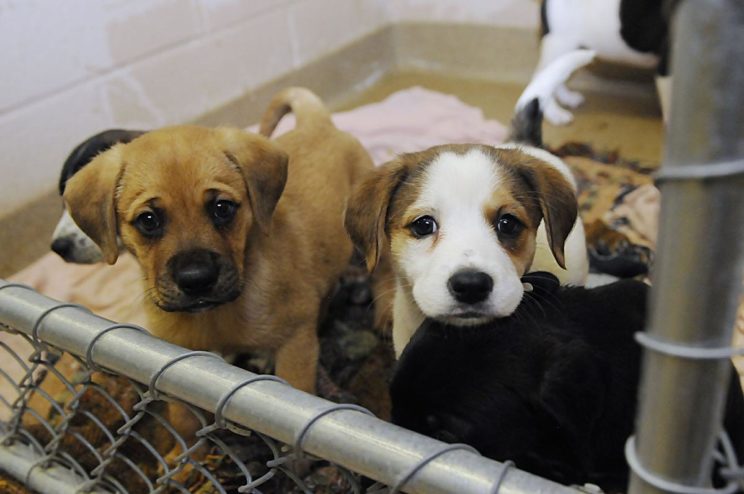
“Nebraska Department of Agriculture records show that half of the state’s commercial dog and cat breeders have left the business over the past seven years.” That is incredibly good news. Moreover, it is a trend that can continue, accelerate, and be replicated elsewhere.
The progress in Nebraska shows that laws banning the pet store sale of commercially-bred animals work, with a breeder there admitting that, “Midwest breeders were hurt by a California law that banned pet stores from selling commercially bred puppies, kittens and rabbits.” In addition to hundreds of cities that have done the same, that should intensify as the second statewide ban in Maryland goes into effect on January 1.
What we can do: Work to pass retail sales bans (including internet sales) in other cities and states.
Second, Nebraska officials have begun more robustly enforcing animal care standards: “breeders close up shop after being found in repeated violation of Nebraska animal health and welfare standards. By going out of business, the breeders avoid having to appear at administrative hearings and pay potential fines.”
What we can do: While passing a complete ban on commercial breeding may not be possible at this time in history, until we can do so, we must increase regulation of commercial breeding — setting limits on the number of breeding females, creating dog-generous housing, care, veterinary, exercise, and socialization requirements, ensuring cruelty laws apply to them and are robustly enforced, including one-strike rules for serious offenses.
Finally, fewer people are buying animals and overall adoption rates for shelter animals and rescues are increasing. Of the $72.5 billion spent on caring for animals last year, the amount spent to purchase animals declined by 4.3% and is “the smallest area of total pet industry spend.” When it comes to adding a new animal to their household, more people are “turning to shelters and rescues.”
What we can do: In addition to promoting adoption and rescue as ethical imperatives and educating people about the neglect and abuse inherent to commercial breeding, we must work to reform shelters in our communities. Pounds that kill drive adopters to breeders and puppy mills. When we reform shelters, we not only make them safe for animals and animal lovers to work at, we make them safe for adopters, too.
Onward and upward:
————-
Have a comment? Join the discussion by clicking here.